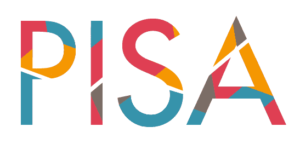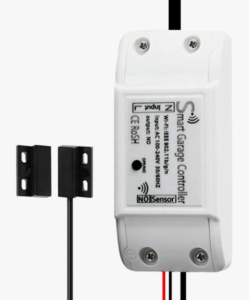The experience of booking a reception for an INTA-annual-meeting-related event is always quite odd. I just yesterday reached closure in the arduous process of booking the venue for the Tenth Annual e-Trademarks Listserv reception (see posting). It is quite weird dealing with the INTA annual meeting environment, as I will describe. Continue reading “What it is like organizing an event at INTA annual meeting time”
Tenth Annual e-Trademarks Listserv Reception!

The Tenth Annual e-Trademarks Listserv Reception will take place on Tuesday, May 3, 2022 (7PM to 9PM) in Washington, DC at the time of the INTA annual meeting. Your host is yours truly. For more information, or to RSVP, click here.
How to be unwise when naming your firm
 One of the dumbest things that you can do when you are naming your intellectual property firm, it turns out, is picking a name that is more than 35 characters in length. If you make this mistake, it means you often can’t get paid.
One of the dumbest things that you can do when you are naming your intellectual property firm, it turns out, is picking a name that is more than 35 characters in length. If you make this mistake, it means you often can’t get paid.
A related dumb thing is arranging to have a street address that exceeds 35 characters in length. This, too, might mean that you can’t get paid.
It turns out that there is a simple and quick fix for this problem, as I will mention at the end of this blog article.
How to get “add to calendar” wrong

Back before the Internet happened, the way that a patient interacted with his or her primary care physician was, well, who can remember? It was so long ago. I guess it was mostly telephone calls, postal mail, and the occasional in-person visit. Nowadays for most of us, the chief mode of interaction is the “patient portal”. Recently my health insurance changed, and so I found myself interacting with a new (new to me) patient portal. Whoever designed this particular portal made a dumb mistake in the programming of its “add to calendar” function. The result was that when I showed up on time to my first get-acquainted appointment with my new primary care physician, I was told that I was an hour late and had missed my appointment. I will describe the programming mistake. Continue reading “How to get “add to calendar” wrong”
A happy email to a client
Here, of course with necessary redactions, is the gist of an email that I sent to a patent client today. The main point of the email message was to try to explain why the dollar amount of a bill was much smaller than one would normally expect it to be. There was also a second communications goal for the email, which is to explain how it is that we apparently are going to get an allowance essentially instantly from an art unit that has a First Office Action Prediction that is “pegged” at 30 months and in which the true number, if the USPTO were to be candid about it, is surely a much higher number of months than 30. Continue reading “A happy email to a client”
Companies that offer CIAM (Customer Identity and Access Management)
Sort of by accident I learned just now that there is a whole fairly new emerging industry category called CIAM (Customer Identity and Access Management). This CIAM industry category is populated by a bunch of companies, all of which are only a few years old, and many of which are growing fast. It turns out that CIAM is “a thing”. There are industry analysts and writers who apparently make a living writing about and analyzing the players in the world of CIAM. It turns out that lots of enterprises and corporations are willing to pay lots of money for CIAM services. In this blog article I will name some of these CIAM companies and I will poke fun at how one of the companies markets itself. Continue reading “Companies that offer CIAM (Customer Identity and Access Management)”
Why the word “mobile” in that odd USPTO notice yesterday?
Yesterday the USPTO posted a very odd notice telling all of its customers who use Time-base One-Time Password apps for two-factor authentication that between now and May 1, 2022, they need to discard their existing Secret Code Number and get a new Secret Code Number. As I blogged yesterday (blog article) the notice is strikingly close to being content-free, explaining almost nothing about what it is trying to say. Alert reader Gerry Peters posted a comment to my blog article that made me realize that not only was the USPTO notice nearly content-free, but it also used the word “mobile” in an extremely awkward way. Gerry pointed out that a succinct writer could simply have used the two-word phrase “authenticator app” throughout the USPTO notice, and that instead the writer went to the special point of inserting the word “mobile” no fewer than seven times into the notice, forming the three-word phrase “mobile authenticator app” all seven times.
Gerry pointed out that most users of USPTO systems like PAIR and EFS-Web and Patentcenter and TEAS (all of which require the use of two-factor authentication) almost certainly do not log in on a mobile phone but instead log in on a desktop or notebook computer. Gerry pointed out, correctly, that the everyday shorthand phrase that most people use as a substitute for the accurate but rather longer phrase “Time-base One-Time Password app” is simply the two-word phase “authenticator app”. Gerry wondered whether the seven-time insertion of “mobile” into the phrase was merely a sort of nervous tic, a completely unnecessary addition of a throwaway word, or whether the three-word phrase seemingly so carefully constructed and so consistently employed from the top to the bottom of the USPTO notice might have some significance. Maybe for example the need for users to go through this complicated process of discarding an existing Secret Code Number and getting a new Secret Code number is limited to that subset of users who use mobile devices for logging in at the USPTO?
Having read Gerry’s comment, and having given the matter quite a bit of thought, I conclude two things. Continue reading “Why the word “mobile” in that odd USPTO notice yesterday?”
Why you are forced to do yet another setup of your USPTO authenticator app settings
Many of us use an authenticator app such as Authy or Google Authenticator as our way of doing two-factor authentication when logging in at the USPTO. Many of us recall the USPTO crash of about a year ago (blog article), that forced us to do another setup of our USPTO authenticator app settings. Now comes a strikingly content-free announcement from the USPTO that we must all do yet another setup of our USPTO authenticator app settings. Why is it, exactly, that we must do this? I think I figured it out. Continue reading “Why you are forced to do yet another setup of your USPTO authenticator app settings”
A reminder of a national embarrassment for the United States
 Yes one looks at the headline for this blog article and one realizes that the headline does not narrow things down very much. But I will guess that this particular embarrassment that I am about to touch upon is one that most of us in the US have not thought about for a long time, given so many other more recent national embarrassments. But somehow it got into my head to reflect recently on the unenviable rankings that the US earns in the OECD’s Programme for International Student Assessment, with the acronym PISA. Continue reading “A reminder of a national embarrassment for the United States”
Yes one looks at the headline for this blog article and one realizes that the headline does not narrow things down very much. But I will guess that this particular embarrassment that I am about to touch upon is one that most of us in the US have not thought about for a long time, given so many other more recent national embarrassments. But somehow it got into my head to reflect recently on the unenviable rankings that the US earns in the OECD’s Programme for International Student Assessment, with the acronym PISA. Continue reading “A reminder of a national embarrassment for the United States”
Internet-connected garage door trigger

Alert reader Mike mentioned an internet-connected garage door trigger (see comment to previous blog article). He’s right. These triggers are very handy. And they only cost $30. Continue reading “Internet-connected garage door trigger”
